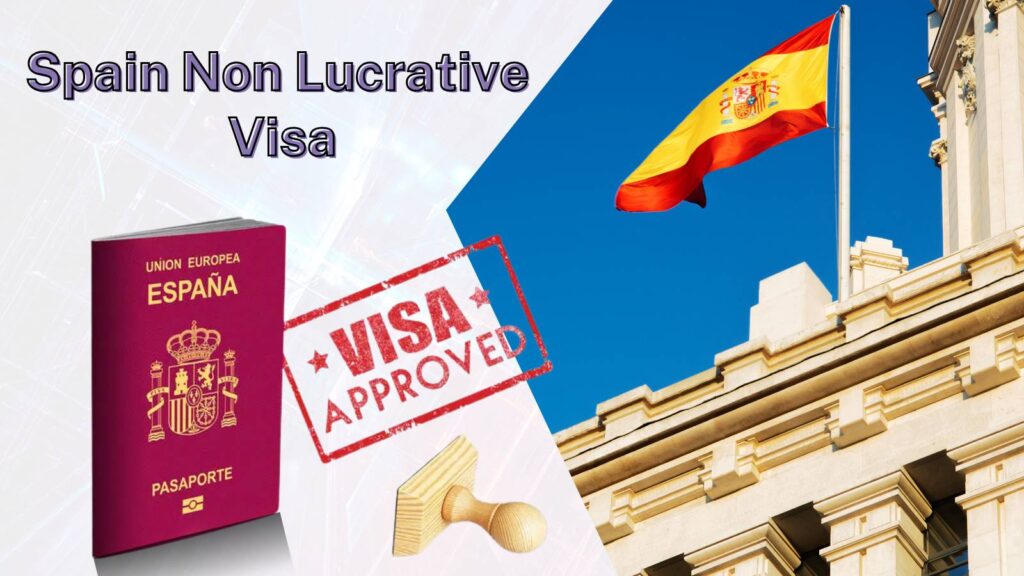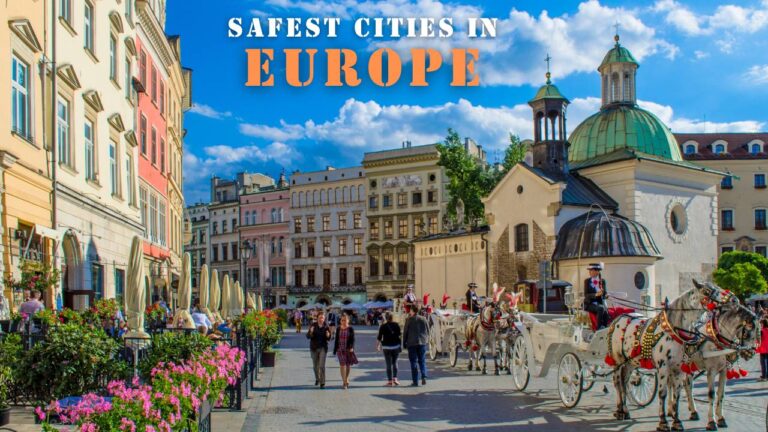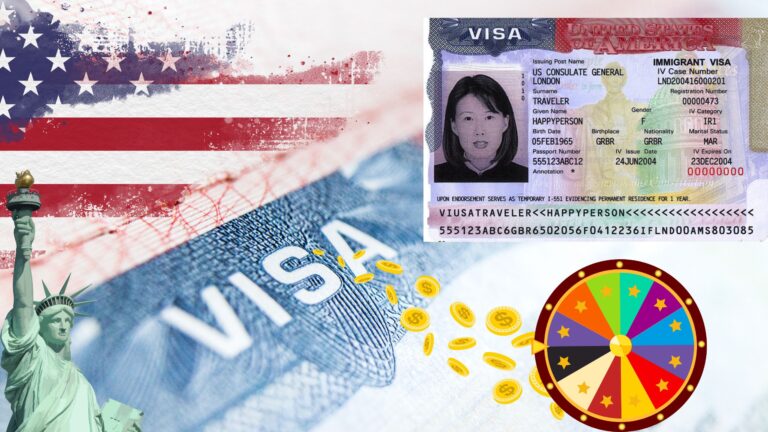In 2025, the allure of retiring or working remotely in Europe has reached a new peak—and Spain continues to stand out as a top destination. With its rich culture, mild Mediterranean climate, affordable cost of living, and world-class healthcare, Spain offers an inviting lifestyle for non-EU citizens seeking a long-term stay.
Easy Visa Countries in Europe for Indians, Filipinos & Non-EU Citizens
If considering moving abroad, the Spain non lucrative visa provides a flexible and accessible residency route. This visa allows you to live in Spain without engaging in local employment, making it ideal for retirees, digital nomads, and financially independent individuals.
Here is everything you need to know about the Spain non lucrative visa 2025—from eligibility criteria and required documents to financial guidelines, application steps, and lifestyle benefits.
What Is the Spain Non-Lucrative Visa?
The Spain non lucrative visa is officially classified as a long-stay visa that allows non-EU citizens to live in Spain for more than 90 days without engaging in any gainful employment or professional activity within Spain. Initially popular with retirees, the visa has expanded in scope over the past few years, especially during the rise of remote work culture. By 2025, the visa is now widely used by individuals who have passive income, pensions, savings, or remote income not tied to Spanish clients.
Europe Visa Fee & Cost 2025: Price, Charges, Processing Time
One of the biggest advantages of this visa is that it doesn’t require any business activity or physical investment in Spain, unlike the Golden Visa. Instead, it’s designed to offer a peaceful and legal residency option for those who simply want to live in Spain and support themselves independently.
This means no hiring obligations, no business tax setups, and no need to navigate the Spanish labor system. It’s a perfect solution for those who prefer a quiet life, wish to explore the Spanish culture, or want to test the waters before applying for long-term or permanent residency.
Spain Non-Lucrative Visa 2025 Requirements
To qualify for the Spain non lucrative visa 2025, applicants must meet several well-defined criteria to ensure that they can live in Spain without being a burden on the national system.
These requirements are assessed thoroughly during the visa application process and must be supported with official documentation. Here’s what you need:
1. Financial Stability
Applicants must demonstrate that they have sufficient financial means to support themselves—and their family members if applicable—during their stay in Spain. As of 2025, the required amount is based on Spain’s IPREM index. The minimum income is €2,400 per month for a single applicant, with an additional €600 per month for each dependent. That equates to €28,800 annually for an individual, or €36,000 or more for a couple.
You can provide evidence through:
- Certified bank statements showing sufficient balances
- Proof of regular pension payments
- Passive income such as rental properties or dividends
- Investment accounts or fixed deposits
2. Full Health Insurance
Applicants must show that they have private health insurance from a company authorized to operate in Spain. The coverage must be equivalent to or better than the public healthcare system, with no deductibles or waiting periods. It must cover primary care, emergencies, and hospitalizations.
3. Clean Criminal Record
You must provide a criminal background check from your country of residence and any country where you’ve lived for more than six months in the past five years. The certificate must be apostilled and translated into Spanish by a certified translator.
4. Medical Certificate
A certificate issued by a licensed physician must confirm that the applicant does not suffer from any diseases that could pose a risk to public health in Spain. The wording must follow the World Health Organization (WHO) standards and be issued within the last three months.
5. Proof of Accommodation
Whether you’re renting an apartment, buying property, or staying with someone, you must submit documentation proving where you’ll reside. This includes:
- A signed rental contract
- Property deed (Escritura)
- Invitation letter with utility bills if staying with someone
Who Should Apply in 2025?
The Spain non lucrative visa 2025 is designed for individuals who have the financial resources to live comfortably in Spain without needing to work locally. It’s ideal for various groups, each with their own motivations and lifestyle goals.
Retirees Looking for a Relaxed European Lifestyle
Spain is frequently rated among the best countries in the world to retire. With its warm climate, affordable healthcare, and excellent quality of life, it offers retirees the opportunity to stretch their pensions while enjoying cultural richness and scenic beauty.
The Spain non lucrative visa is tailor-made for retirees who no longer need to work and are looking for a safe, affordable, and welcoming place to spend their retirement years.
Remote Professionals and Digital Nomads
Although the visa does not officially permit remote work for Spanish companies, many consulates now accept remote workers who earn income from international sources.
This makes the Spain non lucrative visa an excellent alternative to the Digital Nomad Visa, particularly for those who do not meet the strict requirements of the latter or who seek a quieter, more stable residency path.
High-Net-Worth Individuals and Families
Who want to relocate their families to Europe without starting a business or applying for a work visa, the non lucrative visa is a simple and cost-effective solution. It offers access to Spanish public and private schools, low-cost health services, and a safe environment for raising children.
Application Process Step-by-Step
Applying for the Spain non lucrative visa requires careful planning, especially regarding documentation and timelines. Here’s how the process works from start to finish:
Step 1: Choose the Right Consulate
Applications must be submitted in your home country at the Spanish consulate that has jurisdiction over your place of residence. Each consulate may have specific document requirements, appointment systems, and processing times.
Step 2: Prepare All Required Documents
All documents must be officially translated into Spanish and legalized, either by apostille or through consular certification. These include:
- Valid passport (minimum one year remaining)
- Completed visa application form (National Visa form)
- EX-01 form for residence application
- Bank statements and financial records
- Proof of accommodation
- Full health insurance policy
- Medical certificate
- Criminal background check
Step 3: Schedule and Attend Visa Appointment
During your consulate appointment, you’ll submit your application and may be asked questions about your reasons for moving to Spain, your financial situation, and your planned lifestyle. The more organized and clear your documents are, the better your chances of approval.
Step 4: Wait for Decision
Visa decisions typically take between 30 and 60 days. If approved, your passport will be stamped with a visa valid for 90 days to enter Spain. You must enter the country within that period.
Step 5: Apply for TIE in Spain
Within 30 days of arrival, you must register at your local town hall (Empadronamiento), then apply for a Foreigner Identity Card (TIE) at your local immigration office. This card confirms your legal residency for 1 year.
Financial Requirements Breakdown
To help you understand the financial expectations, here’s a sample overview of the amounts needed:
| Applicant Type | Monthly Requirement | Annual Requirement |
|---|---|---|
| Single Applicant | €2,400 | €28,800 |
| Couple | €3,000 | €36,000 |
| Family of 4 | €4,200 | €50,400 |
These amounts must be in your name and available for withdrawal. Consulates often prefer to see funds in European or internationally recognized banks.
Living in Spain on a Non-Lucrative Visa
Once you’ve settled in Spain under the Spain non lucrative visa, you’ll begin to enjoy its many lifestyle advantages. Cities like Valencia, Alicante, Malaga, and Seville offer low living costs, strong expat communities, modern infrastructure, and access to beaches and historic landmarks.
The average cost of living for a couple in a mid-sized Spanish city ranges between €1,800 and €2,200 per month, covering rent, utilities, transportation, groceries, and leisure. Spain’s reliable public transportation, low utility costs, and excellent healthcare system make it highly attractive for long-term residence.
Transitioning from a Non-Lucrative Visa to Permanent Residency
The Spain non lucrative visa initially grants a one-year residence permit, which can be renewed for two years twice. After five years of legal residency in Spain, you may apply for long-term or permanent residency, provided you’ve stayed the minimum number of days each year. After ten years, you may also become eligible for Spanish citizenship.
It’s also possible to switch from the non-lucrative visa to a work or investor visa if your circumstances change—though you must apply for the change through the immigration office.
Spain Non-Lucrative Visa vs. Other Residency Options (2025)
| Feature / Criteria | Spain Non-Lucrative Visa 2025 | Spain Golden Visa | Spain Digital Nomad Visa |
|---|---|---|---|
| Purpose | Long-term stay without local work | Residency through property or business investment | Residency for remote workers with foreign employers |
| Minimum Financial Requirement | €2,400/month (€28,800/year) per applicant | Minimum €500,000 in real estate or capital investment | €2,520/month (200% of minimum wage) or equivalent |
| Work Authorization in Spain | ❌ Not allowed to work locally | ✅ Allowed to work or run a business in Spain | ✅ Allowed to work remotely for non-Spanish companies |
| Remote Work Allowed | ✅ Only if income is from outside Spain | ✅ No restrictions if residency is granted | ✅ Specifically designed for remote work |
| Initial Validity | 1 year (renewable for 2 + 2 years) | 2 years (renewable every 5 years) | 1 year (renewable up to 5 years total) |
| Path to Permanent Residency | ✅ After 5 years of continuous residence | ✅ After 5 years of residency | ✅ After 5 years of legal residence |
| Path to Citizenship | ✅ After 10 years of legal residence | ✅ After 10 years of legal residence | ✅ After 10 years of legal residence |
| Family Reunification | ✅ Allowed with additional financial requirements | ✅ Allowed | ✅ Allowed |
| Healthcare Requirement | ✅ Full private health insurance required | ✅ Recommended but not mandatory | ✅ Required with full coverage |
| Application Location | Spanish consulate in home country | Spanish consulate or via property investment route | Spanish consulate or online (pilot phase) |
| Best For | Retirees, financially independent individuals | Investors, high-net-worth individuals | Remote workers, freelancers, digital nomads |
| Main Limitation | Cannot work in Spain locally | Requires large investment upfront | Needs employer or client contracts for verification |
| Ease of Application | ✅ Simple, document-based | ❌ Requires significant legal/financial prep | ⚠️ Varies; strict employer documentation needed |
FAQs
1. What is the Spain Non-Lucrative Visa, and who can apply for it?
The Spain Non-Lucrative Visa allows non-EU/EEA citizens to live in Spain without working for a Spanish employer or running a local business. If you’re a retiree, a remote worker earning income from outside Spain, or a financially self-sufficient individual, you can apply for this visa to enjoy long-term residency in Spain legally.
2. Can I work remotely while holding a Spain Non-Lucrative Visa?
Yes, you can work remotely as long as your income comes from outside of Spain. Many digital nomads and freelancers use this visa to live in Spain while working for foreign employers or international clients. However, Spanish authorities do not allow you to earn income from Spanish businesses or take local employment under this visa.
3. What financial proof do I need for the Spain Non-Lucrative Visa in 2025?
To qualify, you must show that you earn at least €2,400 per month or €28,800 per year for yourself. For each dependent, you need an additional €600 per month. You can provide bank statements, pension income, rental income, or investment earnings to prove your financial independence. Make sure these funds are liquid, accessible, and legally sourced.
4. What kind of health insurance must I buy for the visa?
You must purchase private health insurance from a Spanish provider. This insurance must offer full coverage with no copayments or waiting periods and must match or exceed Spain’s public healthcare system. Authorities will not accept travel insurance or policies that exclude basic services.
5. How long does the Spain Non-Lucrative Visa last, and can I renew it?
The initial visa grants you one year of residency. After that, you can renew it for two years, and then again for another two years, giving you a total of five years. To renew, you must continue to meet the financial and residency requirements, and stay in Spain for at least 183 days per year.
6. How do I apply for the Spain Non-Lucrative Visa?
You must submit your application at the Spanish consulate or embassy in your country of residence. The process includes gathering documents like financial proof, a medical certificate, criminal background checks, health insurance, and completed forms. Once you gather everything, you book an appointment, attend an interview, and wait for your visa decision.
7. Can I bring my spouse and children with me?
Yes, you can include your spouse and dependent children in your application or bring them later through family reunification. To do this, you must increase your financial proof based on the number of dependents and provide marriage and birth certificates translated into Spanish and apostilled. Your family members will receive the same residency rights you hold.
8. Do I have to live in Spain full-time to keep my visa valid?
Yes, you must live in Spain for more than 183 days per year to maintain your visa and qualify for renewals. If you spend too much time outside Spain, you risk losing your residency status. Spanish authorities check this when you apply for renewals or permanent residency.
9. Can I switch to a different visa after moving to Spain?
Yes, after the first year, you can change your visa type if your situation changes. For example, you can switch to a Work Visa, Self-Employed Visa, or Investor Visa if you meet the criteria. You’ll need to apply for this change through Spain’s immigration offices and provide the required documentation for your new visa type.
10. What happens after five years on the Non-Lucrative Visa?
After five years of legal residence in Spain, you can apply for long-term residency, which allows you to live and work in Spain with fewer restrictions. After ten years, you can apply for Spanish citizenship, provided you meet language, cultural integration, and continuous residency requirements.






